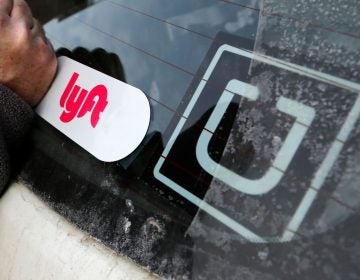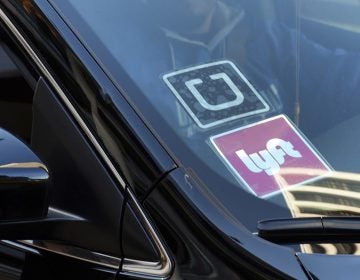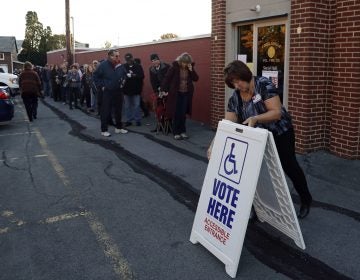As Uber’s IPO hits potholes, Philly drivers prepare to make case before state Senate
Drivers with ride-hailing service may have an ally in state Sen. Anthony Williams, who is planning a hearing before a Senate policy committee in Philadelphia on May 28.
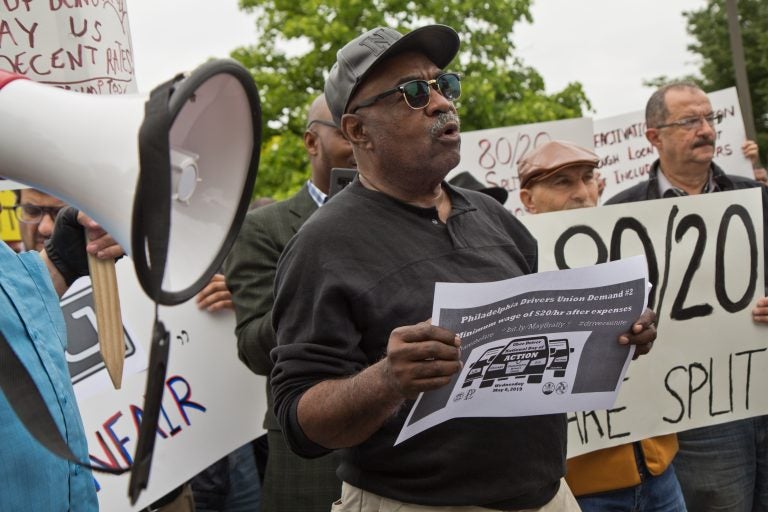
Driver Kevin Myers protests outside Uber’s Philadelphia headquarters Wednesday. (Kimberly Paynter/WHYY)
This article originally appeared on PlanPhilly.
—
Jahandad Ghuman says he makes $100 to $120 a day driving as an independent contractor for Uber. But that’s not enough.
“Commercial insurance, car payment, gasoline,” plus multiple car washes per week and the cost of dressing up properly all have to come out of pocket, he said.
Ghuman shared his story at a rally outside Uber’s Greenlight Hub in Southwest Philly Wednesday. One of an estimated 10,000 independent drivers who navigate Philly streets for the $76 billion company, he was there to call attention to a need for more regulation of the ride-hailing giant.
Pennsylvania law hasn’t caught up to the labor practices enabled by app-based, on-demand service providers such as Uber and Lyft, Ghuman said.
Drivers who agree with Ghuman will have a chance to seek the help of Pennsylvania lawmakers later this month when a state Senate panel holds a hearing in Philadelphia.
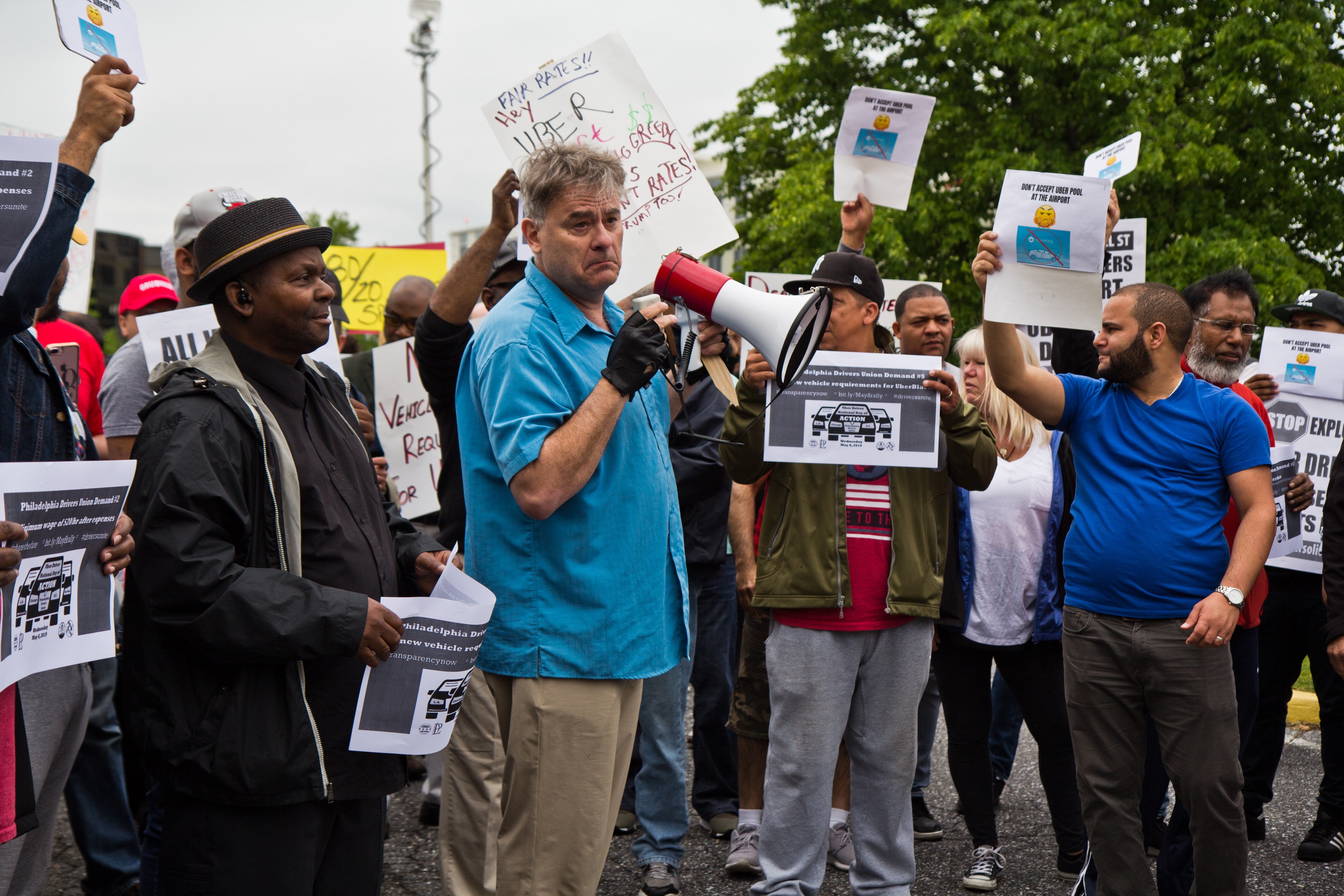
Wednesday’s protest was staged days before Uber’s debut on the New York Stock Exchange.
After much hype leading up to the largest initial public offering in five years, the company hit a few potholes on its first day of trading Friday, closing down 8% and reflecting lingering doubts about its future prospects for profitability.
But how to regulate Uber and similar companies without killing the business — and the opportunities to earn a living they offer — are questions no one has answered. Some cities, including New York, have opted to regulate app-powered ride services such as cabs — capping the number of drivers who are able to pick up riders on city streets and requiring licensing.
Philadelphia and other cities have taken a more hands-off approach.
But labor lawyer Ryan Allen Hancock said that strategy comes at a cost to drivers.
“They are replacing good-paying cab jobs that people were able to raise families on … with precarious, low-wage jobs,” said Hancock, a partner at Willig, Williams, and Davidson.
The rally was pitched as a strike in some markets, and drivers were encouraged to shut off their apps. About 80 protesters showed up for the rally — a tiny fraction of the estimated 20,000 ride-hail drivers in the city and hundreds fewer than anticipated.
Uber estimates around 90% of drivers in Philadelphia do so part time.
Uber officials said they saw no “significant impact” on their service Wednesday compared with the monthly average. But for the drivers who came out, the rally was a first step to raising awareness of a problem that will only grow as the gig economy expands.
“Our drivers are a community in crisis,” said Angela Vogel, a driver. “It’s really hard for a lot of people to fit showing up to a protest into their lives when they already work multiple jobs, go to school, take care of kids, and deal with disabilities. So, we’re really proud of the number of drivers who made this a big priority.”
State hearing set
Drivers may have an ally in state Sen. Anthony Williams, who is planning a hearing before members of a Senate policy committee in Philadelphia on May 28 in hopes that it “would draw some specifics so that we can understand it better.”
As “these new options of transportation evolve,” Williams said, it’s important for lawmakers to keep up.
“The [complaints] that are outlined by the ones who are protesting are a significant concern to me and others as it relates to pay, compensation, hours worked, and about how we treat employees in Philadelphia and Pennsylvania,” he said.
The Associated Press contributed to this report.
WHYY is your source for fact-based, in-depth journalism and information. As a nonprofit organization, we rely on financial support from readers like you. Please give today.




